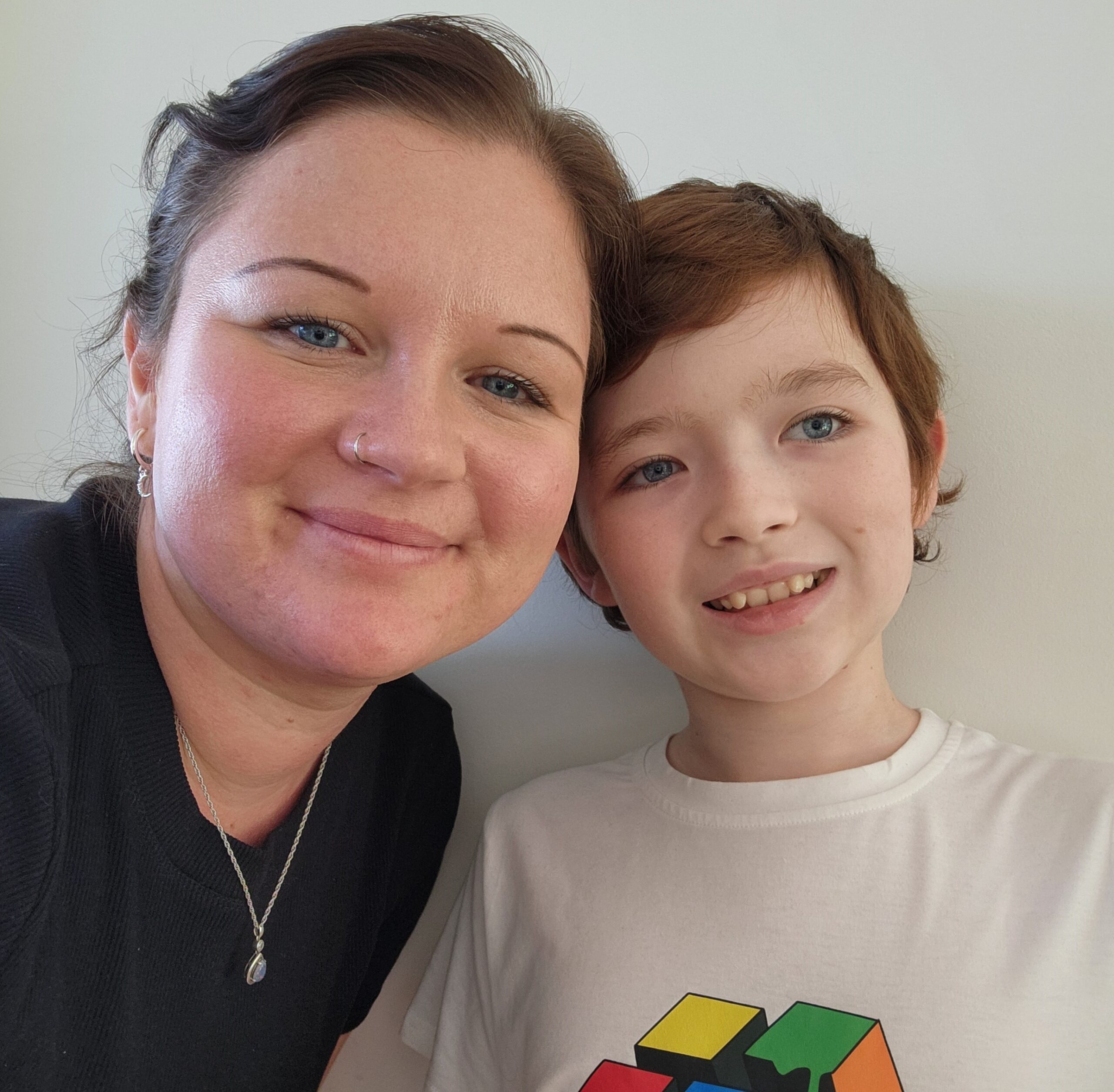
“You know you’ll always be a parent. But you don’t anticipate losing your job, independence, goals and dreams. I suffer from depression and anxiety. We struggle every week to make ends meet.” Michelle says she doesn’t think that anyone mentally prepares themselves to be a full-time carer to their child before having one.
The family of five survives on one income. Michelle’s husband Josh works full-time while Michelle focuses on supporting Harley who has an official diagnosis of ASD, ADHD, OCD and anxiety. Harley needs assistance in the bathroom and has complex needs around his personal care.
Michelle planned to return to paid part-time employment when Harley was six and her daughter was three.
“We were eligible for free childcare hours but after starting school visits when Harley was four we realised they couldn’t cater to his needs.”
After visiting five local schools, Michelle and Josh realised Harley would need more assistance than was available.
“It would mean setting him up to fail. They said just start him and if Harley needs additional assistance we’ll look into it.”
The family reluctantly decided they needed to home school Harley, hoping that in time he would learn to manage some of his behaviours.
“He’s almost 13 now, and this is still a goal.”
Michelle says home schooling was not an easy decision to make.
“We had purchased our first home and had the intention of me starting work again in the near future. When we realised this would not be the case, we were soon faced with the reality that we were going to struggle to make ends meet indefinitely on one income.”
“We had to opt out of Kiwisaver because we couldn’t afford to lose any of my husband’s income. We only recently started Kiwisaver this year after Harley finally began receiving Individualised Funding late last year.”
Michelle is paid an hour a day from this funding to assist Harley with his personal care needs.
“I spend a lot more time caring for Harley than one hour a day, but the additional income has been wonderful.”
She says she finds the positives in life and is naturally a positive person, but it is a reality that the family struggles financially due to her unpaid caring role.
“The cost of living since COVID-19 has been extremely difficult, our rates are higher, power, water, and interest rates are climbing, and we have to borrow money from family to get through some of the hardest weeks. We have been discussing selling our home and moving somewhere cheaper, but this is an extremely hard decision as it means moving away from the few family members we have who we rely on for help.”
Their situation has also caused marriage stress, says Michelle, and she is unable to sustain friendships.
“I don’t have the capacity to be a good friend anymore.”
Returning to work remains a dream, as Harley’s support needs are increasing as he gets older.
If she could join the paid workforce again, this would be a positive change for the family.
“To do something fulfilling and engaging, seeing other adults, the additional income, it would all be life changing. I often feel like I don’t have a choice in how my life has ended up. It would be empowering to feel I have some choices again.”
She says most family carers can experience depression and struggle with their mental health.
“We all wish we were valued more. We are doing so much unpaid work. We all generally feel like it’s impossible to manage both employment and full-time caring. If given the chance, I think we would all love to have some sort of work outside of our carer role. But there just isn’t anything flexible enough.”
This could be an option if New Zealand’s education system was better equipped to support autistic children like Harley, she says.
“It would help if schools could proactively ensure these children felt safe and understood, rather than reacting when things don’t work well. Schools need more teacher aides. There needs to be more education around autistic children for teachers, teacher aides, and even their peers at school.”
Michelle says caring for family members happens out of necessity and those making the choice to care should be a focus of support services. While she is grateful to receive an hour a day of payment for supporting Harley, his growing support needs mean she cannot do more paid employment. This has lifetime economic impacts for Michelle and Josh and their family.
“We are working all day (and often all night) and are treated like we aren’t working. If anyone else was doing this work they would be paid a wage.”
“The Government needs to look long and hard at how they can help families with disabled children because we are all out here struggling, depressed, and feeling like there is absolutely no light at the end of the tunnel.”
“I absolutely love and adore my autistic son and do my best to find joy in our situation. But it is very hard.”